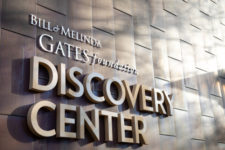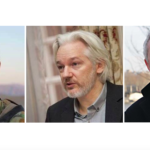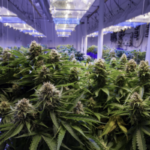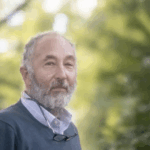The Gates Foundation’s Prophetic Coronavirus Pandemic Simulation

On 18 October last year, the Gates Foundation, the World Economic Forum and the John Hopkins Centre for Health Security held a pandemic simulation exercise, with the aim of “educating senior leaders” about an adequate response to the type of crisis the planet is currently in the grips of.
The simulation was called Event 201. Fifteen participants took part in a mock pandemic emergency board. This included representatives from the UN Foundation, the Chinese Centre for Disease Control and Prevention, Johnson & Johnson, Lufthansa and the Monetary Authority of Singapore.
Representing Australia was ANZ board member Jane Halton, who incidentally has been appointed to the National COVID-19 Coordination Commission by Scott Morrison. The NCCC is a local body of corporate representatives designed to coordinate the economy during the very real COVID-19 crisis.
The Event 201 scenario involved a new coronavirus – a disease that causes respiratory tract infection – that developed in pigs in South America and then infected farmers. The virus spread around the world, with some people developing mild flu-like symptoms, while others perished.
Stranger than fiction
Watching the highlights of Event 201 – which took place just five and a half months ago – is eerie. Simulated “GNN” newsreels appear between footage of emergency board discussions, one of which involves an immunologist outlining that efforts to find a vaccine during the outbreak failed.
The Gates Foundation’s Christopher Elias asserts that keeping global supply chains open would take “knowledge that only the private sector has”, while the UN could play a role coordinating the various private entities. But, it’s clear to Elias that this aspect of the response would rely upon corporations.
The most distressing part of the highlights comes when the issue of the “overwhelming amounts of dis- and mis- information circulating over the internet” is broached. The board members go on to discuss whether internet shutdowns would be necessary to deal with fake news.
Think about it – as we sit locked down in our homes during a real pandemic, with newly imposed restrictions on gatherings with others outside of our own households – what would it be like if the government and private business decided to close down the main mode of communications?
Too little too late
Event 201 led to seven key recommendations, all of which, it would seem now, came too late. These suggested that governments and business sectors should plan for a pandemic situation, which would include stockpiling medical supplies and investing in vaccination development capabilities.
The outcome of the simulated pandemic was catastrophic, with 65 million people dying in the first 18 months. The outbreak was small at first and seemed controllable. But, once it started spreading through the poor neighbourhoods of megacities, it exploded, with cases in nearly every country.
“We have to ask, did this need to be so bad?” says a GNN mock news presenter. “Are there things we could have done in the five to ten years leading up to the pandemic that would have lessened the catastrophic consequences?”
The presenter concludes, “We believe the answer is yes.” However, that timeframe to prepare is now lost.







